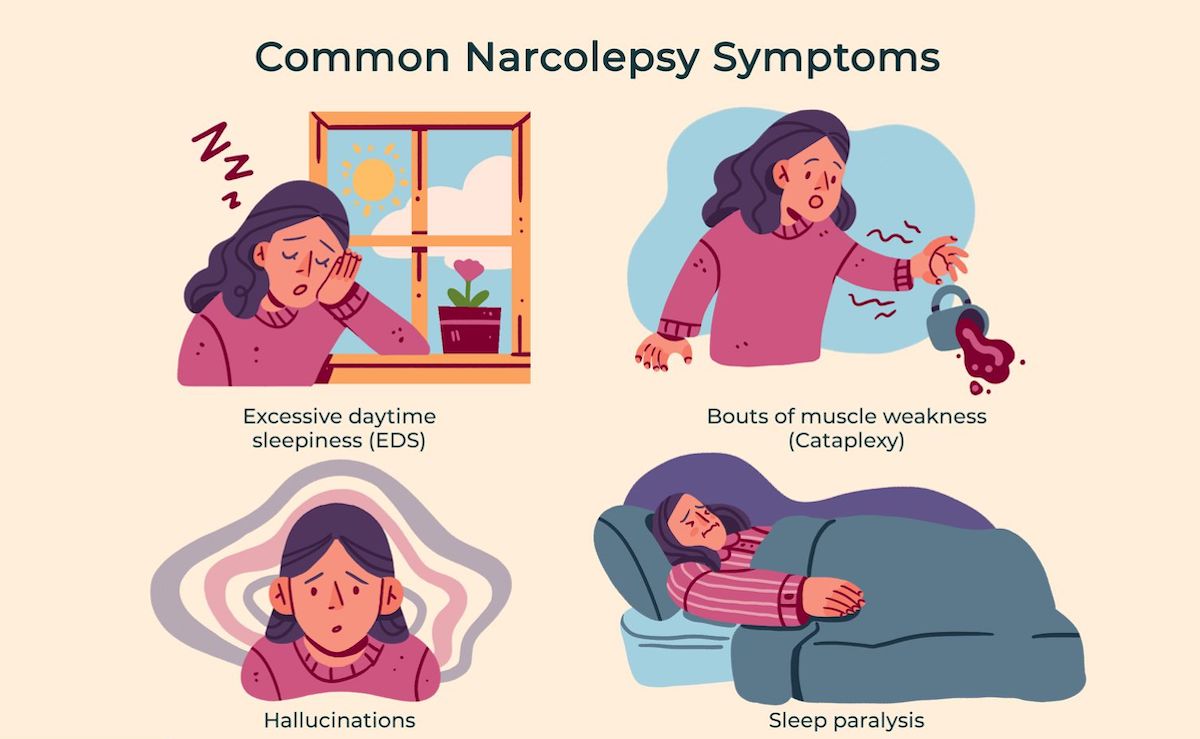Narcolepsy is a rare condition that is still little known to the public, so it is important to raise awareness of this sleep disorder. The condition can have serious complications. The most common complications are: feeling unheard because people have no knowledge (and understanding) of the disease, both at work and privately. In addition, it can have a major impact on intimate relationships. It also poses a risk of being physically harmed during a sleep attack, for example having a sleep attack behind the steering wheel. Last, but certainly not least, people with narcolepsy also have an increased risk of getting overweight (or obese), as their metabolism is low.

Causes of Narcolepsy
The cause of narcolepsy is not fully understood. People with type 1 have low levels of the chemical hypocretin, which plays a role in regulating wakefulness and REM sleep. The exact cause of the loss of hypocretin-producing cells in the brain is unknown. It is believed to be related to an autoimmune reaction. Genetics may also be a factor in the development of narcolepsy, although the risk of a parent passing the disorder to a child is very low, at about 1%. Some research suggests a potential association between narcolepsy and exposure to the H1N1 flu virus. Type 2 can occur as a result of an injury to the hypothalamus, a region in the brain that helps regulate sleep.
Symptoms of Narcolepsy
Narcolepsy is a disorder characterized by four main symptoms, although not all people with narcolepsy experience all four. The four symptoms include:
- Excessive daytime sleepiness: This is a common symptom, often described as “sleep attacks”
- Sudden muscle weakness (cataplexy): This can range from mild weakness affecting one side of the body to more severe muscle weakness.
- Sleep-related hallucinations: These occur immediately upon falling asleep or just before waking up.
- Sleep paralysis: this is a temporary inability to move or speak upon waking up, although the individual may be fully or partially aware.
It is important to note that the severity of these symptoms can vary from person to person. In addition, there are other symptoms (and behaviors) common in patients. These include:
- Automatic movements
- Amnesia or forgetfulness
- Sudden outbursts around sleep attacks
- Changes in rapid eye movement (REM) sleep
Is this sleeping disorder treatable? You’ll find out on the next page, so continue reading quickly!

